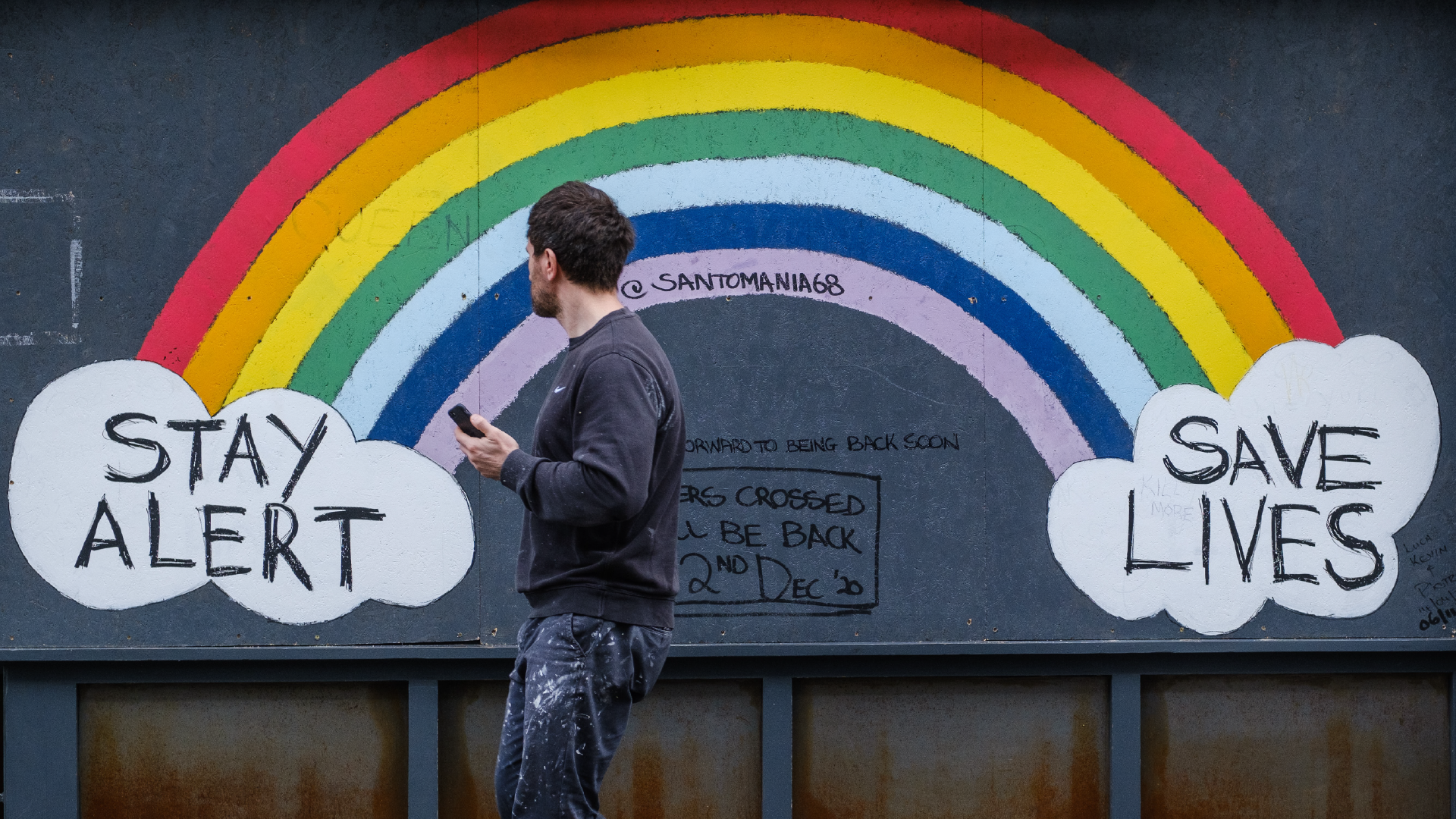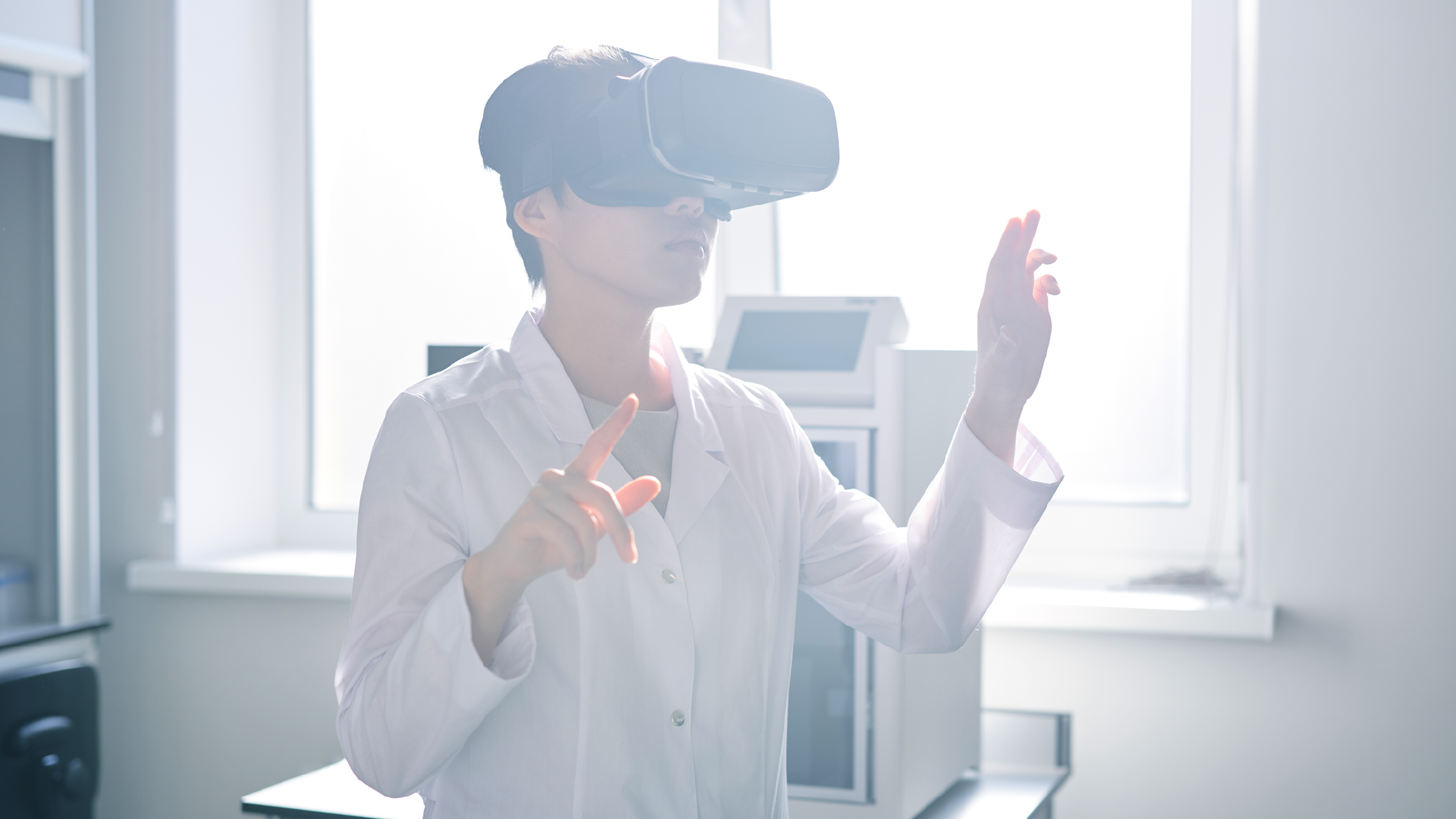Wednesday, Apr 15, 2020
COVID-19 Updates with David Van Sickle

In response to the COVID-19 pandemic, our team will be interviewing experts from across the ecosystem to bring the HLTH community timely facts and updates.
HLTH Team: Can you tell us a little bit about your past experience working at the CDC?
David Van Sickle: Between 2004 and 2006, I was an Epidemic Intelligence Service officer at the Centers for Disease Control and Prevention in Atlanta. As part of the Air Pollution and Respiratory Health Branch, I provided epidemiological support to the National Asthma Control Program, and investigated the health effects of a variety of environmental exposures, including chlorine gas in South Carolina, carbon monoxide in Florida, and ambient ozone among student athletes in Georgia. I also helped establish emergency illness and injury surveillance in coastal Mississippi and New Orleans after Hurricanes Katrina and Rita.
HLTH Team: How do you feel the CDC’s response has been so far to COVID19? What can we expect from them moving forward into later stages of the pandemic’s progression?
David Van Sickle: I hope and expect a lot more public-facing leadership and activity from the agency. It has been weeks since CDC has held a media briefing. As others have noted, it is past time for them to assume leadership and command of the situation, prepare a national strategy, and mobilize every necessary resource required to slow and then turn things around.
Part of the problem is that we’re demanding a return on investment we have failed to make in public health. Year after year, the CDC has had to make do with less. It is hard to overstate how valuable those investments -- at federal, state and local levels -- could be today. Compared to the U.S., the experience of coronavirus in countries with strong and prepared public health infrastructure could not be more different. There are no shortcuts, unfortunately.
HLTH Team: What is unique about COVID19 from a respiratory disease perspective? What makes it particularly dangerous?
David Van Sickle: Across the world, we’ve seen coronavirus create a significant unmet need for life support ventilators. During my time at CDC, I responded to a train derailment in South Carolina that caused the release of approximately 60 tons of chlorine gas, sent hundreds to the hospital, and demonstrated the potential for even local disasters to overwhelm healthcare delivery. At the time, and in response to concerns stemming from September 11th, the Department of Homeland Security developed a set of National Planning Scenarios, published in 2006.
This document highlighted a number of catastrophes that would require access to many more ventilators than would otherwise be available. The scenarios included chemical terrorism, such as the deliberate release of chlorine gas from a railcar in an urban area, and a return of pandemic influenza. We’re now confronting circumstances clearly anticipated by this work and finding ourselves dangerously unprepared.
HLTH Team: How has digital health stepped up to the plate in slowing the spread and helping to triage patients?
David Van Sickle: We’ve seen digital health companies respond with a range of solutions, from diagnosis to treatment. A wide variety of tools are available to help people better understand coronavirus and COVID-19 screen themselves for the disease and locate where to get tested. Telehealth platforms have played a central role in helping people to consult remotely without having to visit a clinic, which has helped to minimize unnecessary impact on health systems.
Companies such as Big Health and Omada have worked quickly to make their digital health tools available to people affected by the pandemic, with the goal of minimizing mental health consequences. At the same time, CMS has implemented new guidance to clarify and encourage the adoption and reimbursement of digital health and remote monitoring.
At Propeller, we’ve been collaborating with health system partners to help them adopt digital health for asthma and COPD. With clinics focused on COVID cases, and many in-person appointments cancelled, a digital health tool like Propeller can help them provide preventive care without a clinic visit, freeing up resources to meet the need of people with asthma and COPD who need immediate attention and the emerging demands of COVID patients.
HLTH Team: What makes those suffering from chronic disease at high risk and how can digital health help protect that particular population?
David Van Sickle: The clinical epidemiological data suggest that individuals with preexisting conditions tend to do worse when infected with coronavirus. This includes people with chronic lung disease such as asthma and COPD. Current guidance from the American Thoracic Society and the AAAAI, as well as GINA, recommends that people with respiratory disease continue to take their daily preventive medication during the COVID-19 pandemic.
Patients who adhere to their medications, and whose symptoms are well managed, may have fewer concerns about symptoms of chronic lung disease being associated with COVID-19. Patients with well-managed symptoms are also less likely to seek acute respiratory care at healthcare facilities and emergency departments, which decreases the risk of incidental exposure to SARS-CoV-2 and allows healthcare providers to focus attention on patients with other critical needs.
This is where digital health comes in. Patients who use a digital health platform to manage their asthma and COPD are proven to adhere to their medication regimen more closely, and experience fewer serious symptoms.
The good news is that since the COVID-19 outbreak began to ramp up in January, our data shows that people with asthma and COPD have been 14.5 percent more adherent to their medication, with the steepest increases occurring in the last two weeks of March. This indicates that patients are taking expert recommendations on adherence seriously and prioritizing their preventative health with the help of a digital health tool.
HLTH Team: How has state and federal governments best utilized tech during this pandemic? Where do you see tech becoming an even more important piece of the solution moving into the next several months?
David Van Sickle: We think the use of technology in the ongoing care of chronic disease will surge due to COVID-19. With federal reimbursement now in place to support remote patient monitoring and management, we can expect routine visits -- designed to assess patient status and make necessary adjustments to treatment -- to move online.
Because digital health tools can monitor patient well-being at a distance, it will be easy for providers to make evidence-based decisions on patient care by looking at digitally collected data. With these changes, it should be possible to lead more people to minimally-burdensome treatments that truly control symptoms and help them participate fully in the activities they choose.
HLTH Team: Lastly, what do you feel have been the top 3 lessons learned so far in battling this pandemic?
David Van Sickle: A global community of scientists and doctors came together in a way I’ve never seen before. With the help of technology, the community immediately began collaborating, learning and improving day after day. We quickly had diagnostic tests, candidate therapies, and potential vaccines under study. Thankfully, coronavirus has neither the speed nor the agility to keep up.
But the approach of the clinical and scientific community, which united to face the virus and share and apply emerging knowledge and practices, has not been adopted as consistently by governments. Instead we’ve seen slow and variable responses, muddied by disbelief and denial, resulting in avoidable disasters. At the moment, we have learned enough from the global experience to assemble a national strategy and effective counter-measures. What we need now is coordinated leadership to pull this together and put it to work.
About David Van Sickle:
David Van Sickle is the co-founder and CEO of Propeller Health, a leading digital health company dedicated to the management of chronic respiratory disease. He founded Propeller Health in 2010 after observing how digital health tools could improve the experience of chronic disease and give patients and their providers new insights into their disease. David received his PhD in medical anthropology from the University of Arizona in 2004 and went on to complete his dissertation research on the rising prevalence of asthma and allergy in India, a topic he previously studied among Native Americans in Alaska, Arizona and New Mexico. From 2004 to 2006, he served as an Epidemic Intelligence Service officer at the Centers for Disease Control and Prevention in Atlanta, assigned to the Air Pollution and Respiratory Health Branch. During that time, he provided epidemiological support to the National Asthma Control Program and investigated the health effects of a variety of environmental exposures. Between 2006 and 2009, David was a Robert Wood Johnson Foundation Health and Society Scholar at the University of Wisconsin School of Medicine and Public Health. David specializes in asthma, chronic respiratory disease, medical device development, health data and disease surveillance.
You May Also Enjoy

Tuesday, Feb 14, 2023
How Digital Health Can Help Heal Care Inequity

Manav Sevak

Friday, Oct 9, 2020
Navigating 2020 by Embracing Innovation

Roberta L. Schwartz

Wednesday, Apr 8, 2020
COVID-19 Perspectives with Dr. Rhonda Medows

Dr. Rhonda Medows